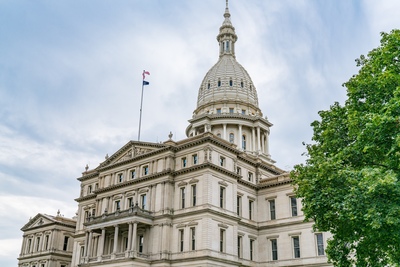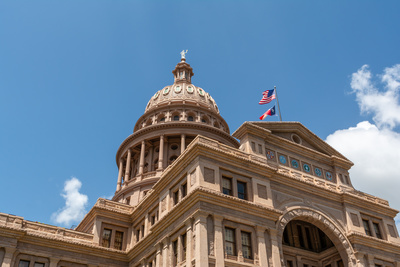
Compliance
How A Supreme Court Decision Changed Federal Public Corruption Prosecutions (Why State and Local Laws Matter)
January 7, 2026 | Ben Seitelman, Bradley Coffey

Key Takeaways:
Despite its reputation, lobbying activity is highly regulated, and there are numerous laws at the federal, state, and local levels designed to keep lobbying activity transparent. Jurisdictions designate entities that are responsible for auditing and ensuring compliance. Most lobbying jurisdictions also have a complaint process, allowing anyone to report lobbying law violations. So what happens when someone engages in improper lobbying activity? Like everything else when it comes to lobbying, it depends on the jurisdiction.
A complaint investigation differs from an audit. A complaint investigation can trigger an audit, but many jurisdictions also randomly audit individual lobbyists, their employers, and retained lobbying firms. A complaint investigation starts with one or more people making a complaint that a person or entity has violated lobbying regulations and/or ethics laws. Many jurisdictions will then proceed into a deeper investigation and hearing following a complaint, similar to a legal case. Investigations can lead to talking to witnesses, testifying, or even issuing subpoenas for documents and evidence.
Complaints tend to address issues larger than an untimely lobbying disclosure (though that can still get you hit with a fine!), but they will address common occurrences like lobbying without registering, improper or prohibited gifts and political contributions, or intentional misrepresentations on registrations and disclosures. Depending on the violation, the complaint process may remain with the appropriate Ethics office, or the matter may go up the ranks and end up on the Attorney General’s desk.
Generally, complaints must show sufficient evidence of a violation, or they will be dismissed. This helps limit the filing of frivolous complaints, which take up unnecessary time and resources. Some states even impose fines for the filing of a frivolous complaint. However, some states do allow anonymous complaints, making it easy for anyone to file a complaint.
The Secretary of the Senate and the Clerk of the House oversee compliance with the federal Lobbying Disclosure Act (LDA). The LDA does not prescribe a specific process for filing complaints but requires that the Secretary of the Senate and the Clerk of the House review and verify the accuracy, completeness, and timeliness of registration and reports.
If a lobbyist or principal is out of compliance, the Secretary of the Senate and the Clerk of the House must notify the person or entity in writing. The lobbyist or entity has sixty days to respond, at which point the matter will be referred to the U.S. Attorney for the District of Columbia for an investigation. The U.S. Attorney’s office then attempts to bring the respondent into compliance and may impose a civil fine up to $200,000.00. Though rare, criminal violations can be prosecuted by the Department of Justice, with maximum penalties of fines up to $250,000.00 and/or up to five years in prison.
States have different but often similar processes for handling complaints. Here are a few examples.
Massachusetts is well known for strict lobbying laws, and violations can be alleged by submitting a sworn complaint to the Secretary of State. The Secretary of State’s office begins a preliminary inquiry upon receiving a complaint, and if there is reasonable cause to believe a violation occurred, the office will initiate a public adjudicatory proceeding. At this step, the Secretary of State’s office may require witness testimony or request documents and other evidence, including by subpoena — similar to a court trial. If a violation is confirmed, penalties range from requiring compliance with reporting to revoking a lobbying registration, and fines of up to $10,000.00 per violation.
California lobbying complaints are submitted to the Fair Political Practices Commission. If a complaint is found to have merit, it is assigned to the Enforcement Division for a full investigation. The Enforcement Division may request documents, issue subpoenas, and interview witnesses. After the investigation is complete, the Enforcement Division may issue a warning letter or attempt to settle the matter with a fine. If a settlement agreement is not reached, the case can be pursued through a formal administrative proceeding or a civil lawsuit. Civil fines can reach $5,000 per violation; if a person willfully or knowingly violates these laws, they can be guilty of a misdemeanor with fines up to $10,000 per violation.
Complaints can also be filed for violations of local lobbying laws — in many states, lobbying at the local level is subject to a separate set of laws and reporting requirements. In New York City, the City Clerk investigates public complaints for violations like unreported lobbying activity. If a formal notice of a violation is not addressed and the issue fixed, the City Clerk may initiate a formal action with the Office of Administrative Trials and Hearings. The City Clerk may take depositions and will issue a final decision after a formal hearing. Penalties can range into the tens of thousands of dollars.
Some commissions have imposed blackout periods, prohibiting complaints filed near elections. Often these are restricted to complaints filed directly against candidates, or to complaints alleging violations of ethics laws relating to political campaigns, such as an improper political contribution.
Lobbying laws and ethics rules are also subject to changes and revisions. In April, Kentucky amended its lobbying statutes to allow a complaint to be dismissed without any preliminary investigation if less than five members find there is reason to believe a violation has been or is about to be committed. The amendments also require the Commission to provide a draft of its proposed response to an advisory opinion request at least 10 days before it is scheduled to consider the advisory opinion. This year, lawmakers enacted the new law (KY HB 517) after overriding Governor Beshear’s veto, which cited concerns about weakening ethics laws.
Keeping up with rules, deadlines, and often confusing requirements is a daunting prospect for teams of all sizes. Let us manage your federal, state, and local registration and reporting responsibilities, or manage your Campaign Finance program. Read more about our Compliance Services here, or get in touch here.

January 7, 2026 | Ben Seitelman, Bradley Coffey

January 5, 2026 | Chase Klingensmith, Dylan Busler

December 3, 2025 | Chase Klingensmith